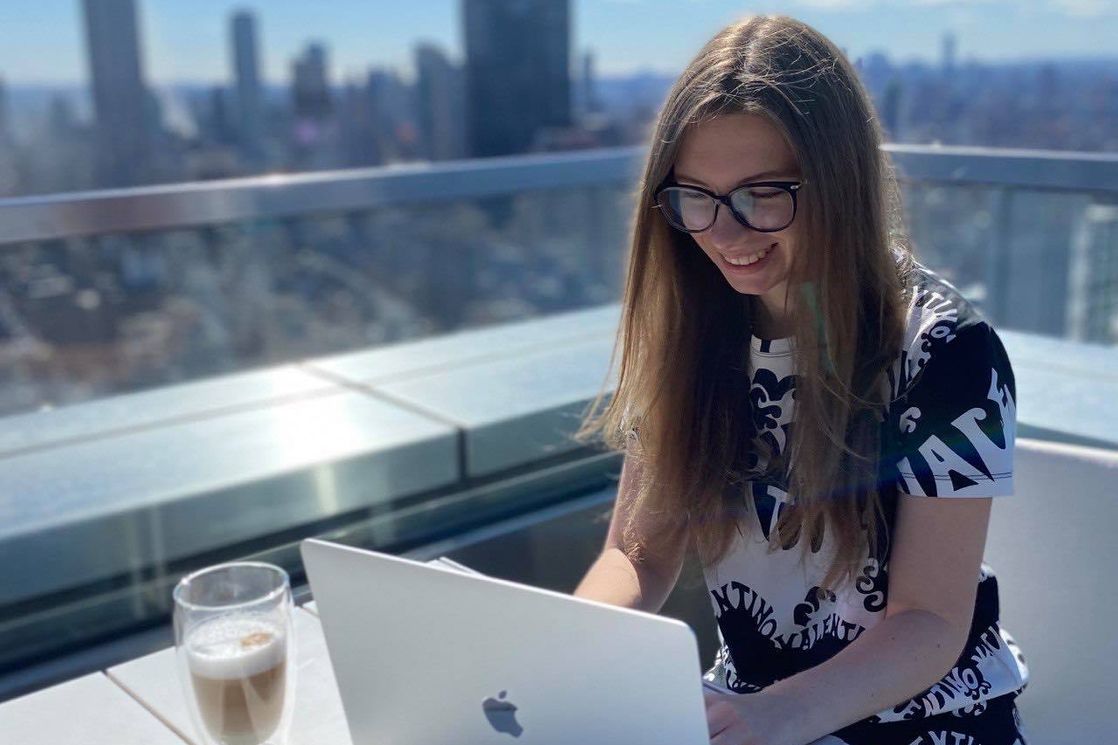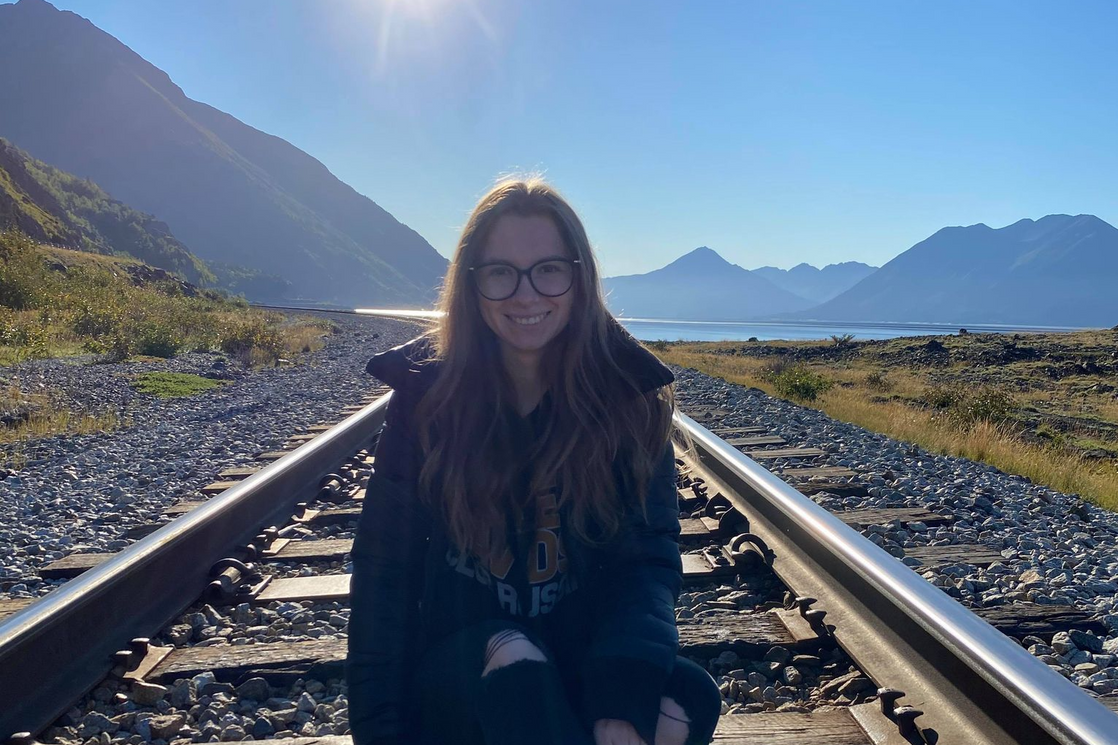“Our rapidly changing world makes learning a great experience”

Where did you see yourself professionally and was ICEF an intentional choice?
I didn't have a clear idea of what I wanted to do or where I wanted to work. What I did know, however, was I wanted to study abroad. This was why I chose an English-taught programme. With brilliant international teaching staff and the curriculum developed in cooperation with the London School of Economics and in line with highest international standards, ICEF was, indeed, one of the few schools that opened access to graduate studies at some of the best universities in the world. No less compelling was the academic experience and careers of its alumni.
How would you describe the competitive environment that graduates often refer to as a success factor at ICEF and HSE as a whole?
ICEF is known for its bright students. The people in my class went to the best schools and held prizes from the most prestigious academic contests. And many of them were fee-paying students. Their high admissions score made them eligible for HSE’s tuition-free programmes but they chose ICEF instead. They must have had a strong motive and knew the ICEF’s programme was right for them.

True, there are categories of students who receive preferential consideration for admission and there’s a rating system applicable to students. You’d think this would cause a division and competition among students but it’s the other way round at ICEF. I have experienced nothing but supportive atmosphere throughout my years of bachelor’s studies, where it is normal to turn for help to classmates, professors, studies office or alumni. The rating system does, of course, sound challenging, but in a setting as high quality as ICEF’s, it works more like an encouragement to attain good grades than what leads to conflicts between people.
I studied at a small private school before I enrolled in ICEF. ICEF is just one part of HSE but its enrollment stands at an impressive 300. I was new to a community as large as this but it wasn’t difficult to adjust at all as opportunities were emerging to do things together – case competitions, training projects, clubbing until dawn.
How did you decide you wanted to pursue a graduate education in mathematics?
I quickly realized Economics was not exactly my domain. I first wanted to get into charity work, which I did realize was a thing to be taken up later, once I have gotten experience and equity, just like Bill Gates. Then, I turned my eyes to consulting and was competing in case competitions until finally, in my third year, I encountered a beautiful course called Abstract Mathematics and its teacher Alexey Almazovich Akhmetshin.
That course opened my eyes to the beauty and versatility of mathematics as a science. At some point I even regretted not having chosen a mathematics major class as a high school student, which would have allowed me to pursue mathematics after school. It was my professor, Alexey Almazovich Akhmetshin, who helped to shape my choice of master's major by prompting Quantitative Finance, which I hadn’t heard about before. And later as a NYU student I took interest in data science to become completely convinced I wanted to be in it after I did an internship in quant research.
Who might find NYU Courant a good fit and why? What was it that you liked about the NYU programmes?
One of the most things to be looked at first when choosing a master's programme is, perhaps, placement, i.e. figures of how many students find work after graduation and how soon and where.
NYU Courant has a reputation as one of the world’s best providers of applied mathematics education, and it offers both master’s level courses and post-graduate research opportunities for academic careers. I opted for MS in Mathematics in Finance, a programme that equips learners with hands-on skills and knowledge for careers as a quant (quantitative finance). What drew me in the first place was the professors who are among the most famous people in quantitative finance industry – Bruno Dupire, for instance, best known for his work on volatility modeling which is being used now by every bank in the world. Another more important thing was location – New York.
Networking is essential for a successful job search: the very fact that NYU is 15 minutes from Wall Street is a huge benefit
Our programme involved regular meetings with the industry – international banks, hedge funds, investment companies, among other employers. It’s been a truly amazing experience to be able to invite a bank department manager for a cup of coffee to get the first-hand information from them (surprising as it may sound, they agree).
What role did the international status of the ICEF programme play in your admission and further study?
No matter how much you’ve traveled the world and how many times you have been to the country, your experience as a tourist will always be different from when you stay for a longer period. Believe me, things will never stop taking you by surprise once you submerge yourself into a new culture and linguistic environment. Add to this the state of shock one gets from the training process and the experience will turn out more than challenging. But, when you are an ICEF graduate, continuing studies abroad looks a natural choice. English as the language of instruction sounds familiar, as does the learning process design.
And because its alumni continue to get places on the best programmes across the world, ICEF is well known both among academics and in the industry. My boss at BNP Paribas (the bank I am currently working at), Daniel P. Ahn, who was Chief Economist at the U.S. Department of State under President Obama, is well aware of ICEF and had been to HSE to present the article he wrote about Russia and how sanctions influence the economy.
What are the ways for international students to stay to work in the United States? One thing we know about is STEM (Editor’s note: STEM – Science, Technology, Engineering, and Math, including Computer Science – grants STEM majors an increased chance of being issued the United States visa).
Surprising as it may sound, the U.S. work visa takes winning the lottery. Yes, you heard that right. There are so many people wanting to work in the United States that the country instituted H-1B visa programme that awards work visas to seekers every year. Its current visa quota is 85,000. Of these, 20,000 are reserved for those with a doctorate or master's degree awarded by an American university and the rest are common applicants and those with a bachelor's degree. Once the 20,000 applications have been selected, the non-winning holders of master’s degrees are combined with the rest of seekers and are thereby eligible for a “second chance”.

But, if you are a master's student in the U.S., you have the option of starting a job immediately after graduation as an OPT intern (OPT – one-year Optional Practical Training, which is a paid internship). If you are a STEM participant, your permit has the duration of up to three years and makes you eligible to participate in the green card lottery as many as three times, which means you stand a much better chance of winning.
How did you go about planning your career as a student in the U.S? What career avenues are generally available to American master's students?
The U.S. operates a clear system for assisting master's students with getting permanent jobs. Every fall, schools are approached by large companies willing to recruit candidates for their summer internships, after which offers are made to those they like best. Such internships are to be started after graduation, allowing master’s students to concentrate on their studies during their remaining time as students instead of job searching, which takes a huge amount of time and effort. This is especially advantageous for international students who have only 90 days to receive the offer upon graduation.
In my programme, internship was part of the curriculum and a diploma requirement. Those who are still undecided on their desired employment often choose to do rotational internships in which interns rotate between different departments and roles. Doing an internship would be the first choice with the majority of American students.
And because I couldn’t see myself in academia, I chose to do an internship and it worked right for me because I realized I wanted to work with data. There isn’t a large company that doesn’t use data analytics to streamline its processes and create new ones. One good example is targeted advertising. Now that data science is a trend and there’s still shortage of skilled data analysts, it is quite easy to find work in this area, given that you have the skills.
So what does a data scientist do on a daily basis? And what is the core business of BNP Paribas where you are currently employed?
BNP Paribas is a French banking group. I am in Economic Research Department, and the projects that I deal with can be quite peculiar. One example is the sentiment analysis model that I have developed to analyze text strings produced by Federal Reserve officials and that gives a score showing whether Federal Reserve’s mentions about the economy are positive or negative. One more task before me was to use SAR images of Earth illumination to predict various economic variables. Data science spans a whole range of careers from finance to medicine. Data scientists works with large amounts of data. They produce training data sets for machine learning and artificial intelligence for disease recognition or GDP predictions, to give some of the examples.

Why did you decide to study at The Yandex School of Data Analysis after NYU Courant?
Our rapidly changing world makes learning a great experience. It's like the ripple effect of water concentric circles: the more you learn, the wider your reach and the more choices and opportunities arise for you. I never considered programming as a school student. It was in my second year at NYU that I came to realize how interesting it was and that I wanted to learn more, so I decided to enroll in The Yandex School of Data Analysis. Why Yandex School? Its machine learning programme is currently one of the best in the world. Juggling Yandex School and work, or graduate education, can be insanely difficult, but it’s worth it. The School teaches courses in algorithms, mathematics and machine learning that are highly specialized and in-depth. I would say that being a data scientist is essentially having an exciting job that guarantees employment in any country and in any field.
What is your measure for success in data science?
Creating my own startup. Or creating something that can make this world a better place.
During your studies at ICEF you enjoyed the status of Russia’s strongest bridge player. Is bridge still your passion?
Many successful bridge players, indeed, have background in mathematics and see bridge as a great brain train game, fueled by excitement at the table. In an intellectual game like bridge, the player’s chances of winning are contingent on analytical thinking skills and excellent memory. The congratulation letter I received from one of the NYU Board officials shortly after the enrollment mentioned bridge as Wall Street’s favorite game. I hold Russia’s Vice-Champion title and a Master of Sports and I participated on the national junior team.
Passions had to be put on hold as work and Yandex School take all my time now. The pandemic has moved nearly all games online. Plus, I have a work-from-home job, so whenever I can spare a moment and take a break from the computer I exercise to stay fit. But I think I’ll catch up on bridge. Bridge can be played till very old age.
And I’ve always had a special fondness for pets. Went to a pet shelter on my first weekend after starting job and adopted two charming cats, Bun and Muffin. They are my top aides in work and studies.